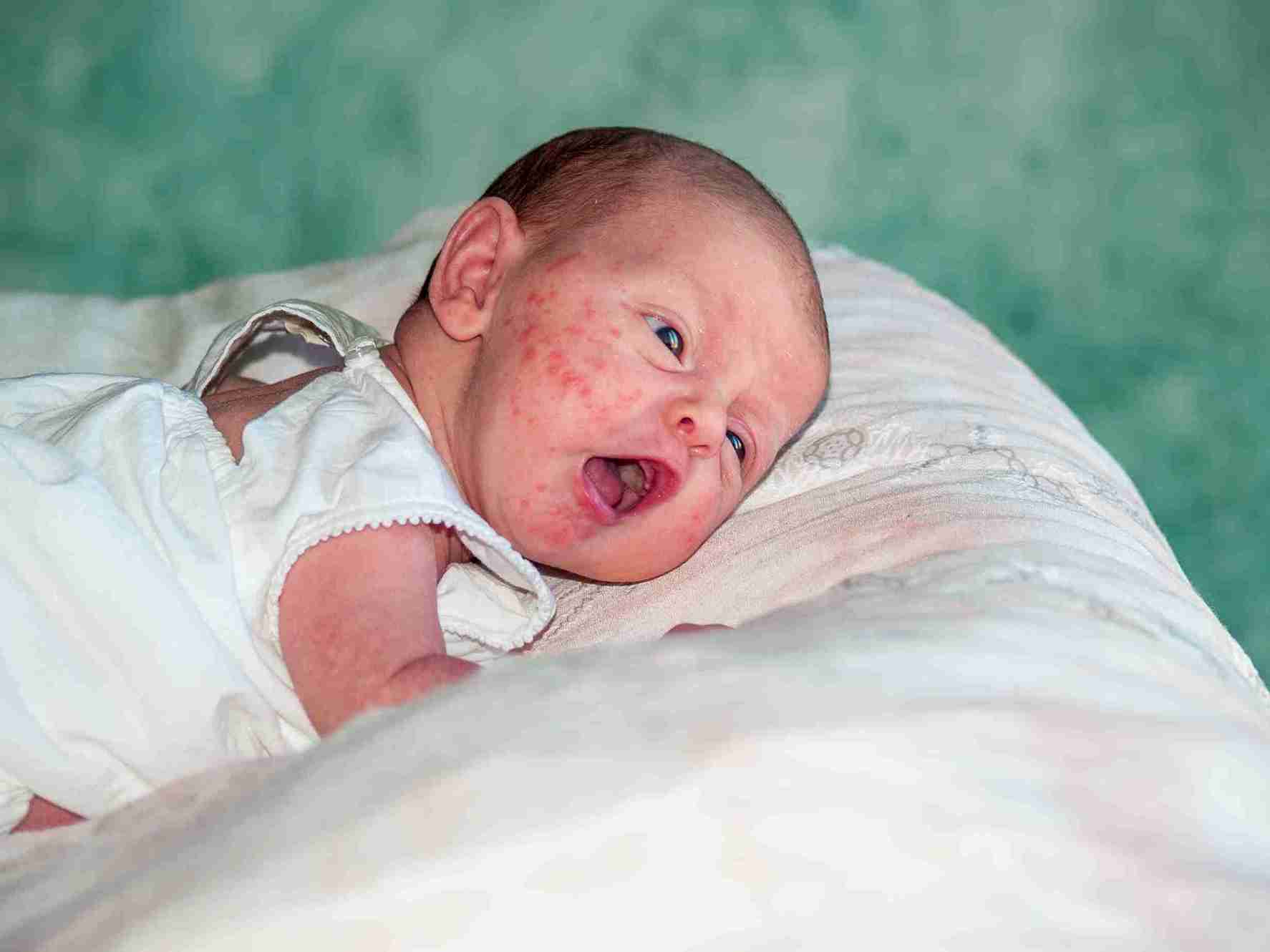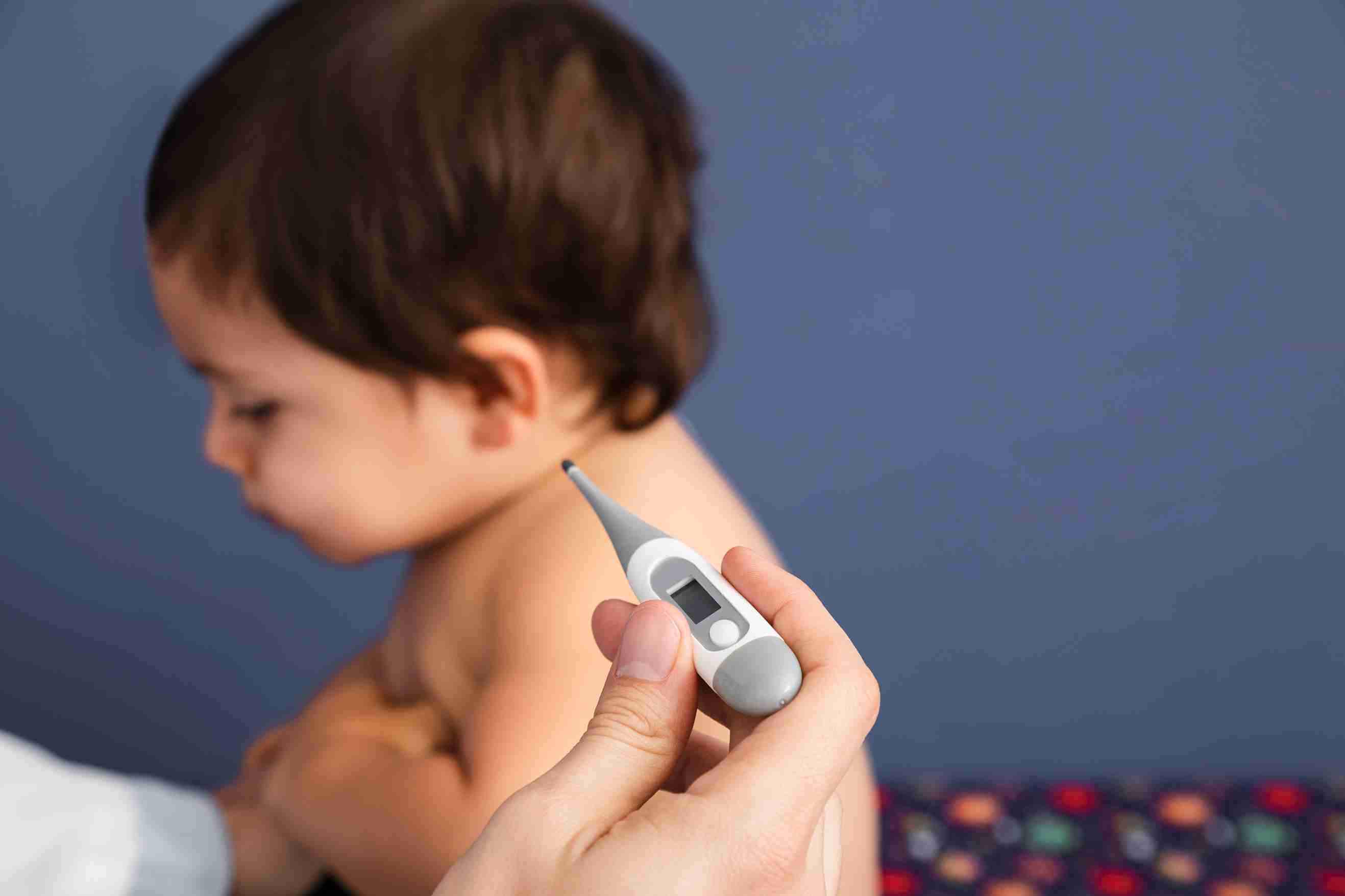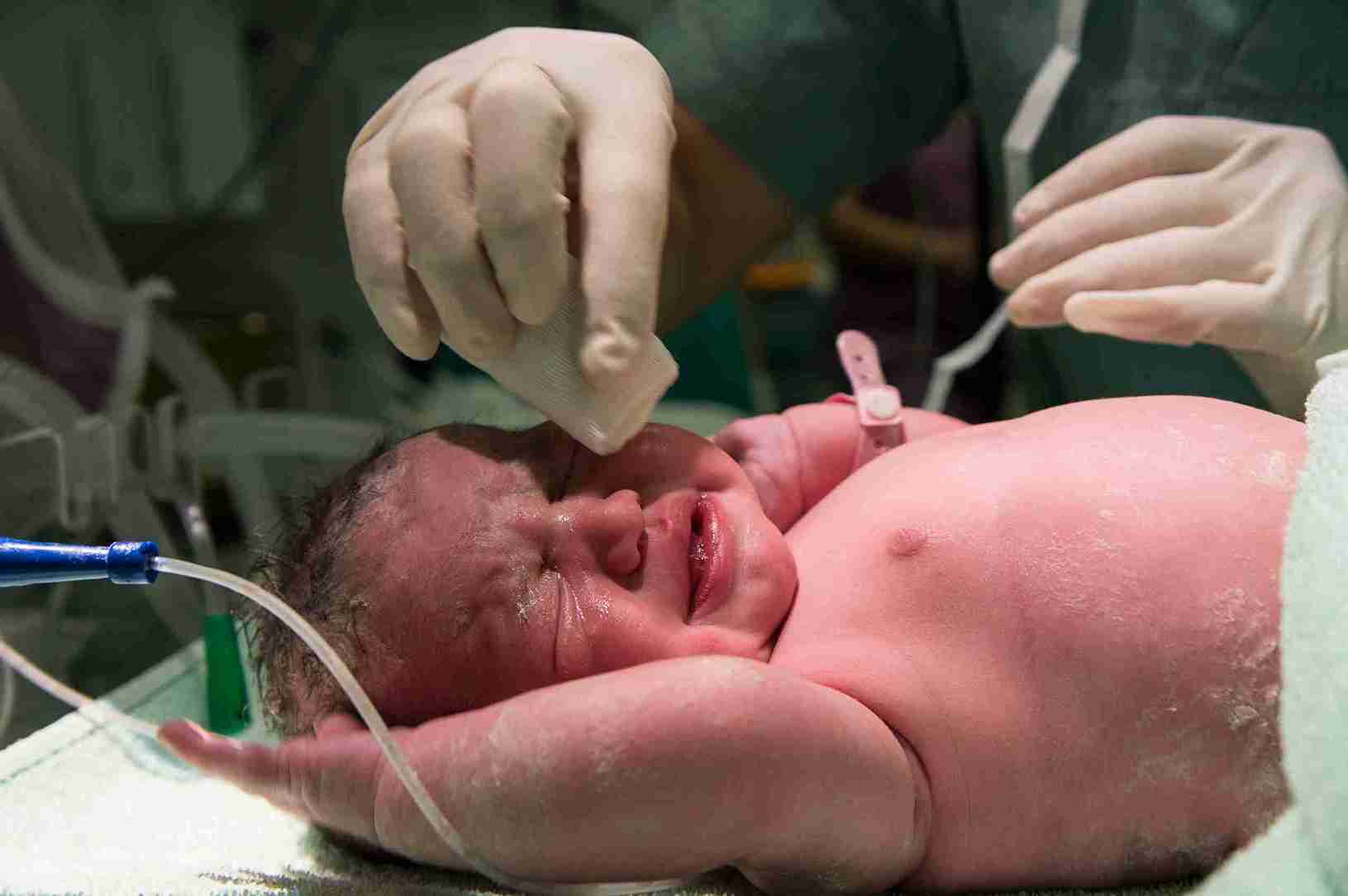
Your newborn baby may suffer various congenital health problems that badly affect their well-being. Congenital rubella syndrome is one such congenital disease your newborn baby may suffer. This disease is caused by a virus called Rubella Congenital rubella syndrome affects pregnant women in their first trimester, resulting in miscarriage. The disease may also affect your baby in the fetus. Treating or preventing this condition is possible to avoid serious congenital defects. Continue reading to know more about congenital rubella syndrome.

Congenital rubella syndrome is a condition that affects pregnant women when they are infected with the rubella virus. The infection may affect the baby in the womb through the bloodstream. It can cause problems in fetal development, congenital heart disease or cataracts. If the mother contracts the infection early, the condition is more likely to be severe. It is a contagious disease that usually starts with a rash on the face of the pregnant mother. Congenital rubella syndrome is rare today due to widespread use of the rubella vaccine.
You may notice symptoms of rubella in pregnancy and newborns.
Pregnant women may notice the following:
● Fever
● Headache
● Cough
● Sore throat
● Loss of Appetite
● Conjunctivitis
● Muscle ache
● Joint Pain
● Marks or bumps in the skin
● Red or brown patches on the skin
● Small head size

● Congenital cataract or heart disease
● Developmental delay
● Hearing Loss
● Swollen lymph nodes
● Enlarged spleen or liver
There is also an increased risk of diabetes and thyroid for babies born with congenital rubella syndrome.
Congenital rubella syndrome is caused when a pregnant woman contracts the rubella virus. The virus enters the fetus through the placenta and can significantly affect the fetus's growth, resulting in congenital health problems. The damage is more severe when the rubella infection affects women in the first trimester, i.e., before the 13th week of pregnancy. Rubella infection does not affect the baby after the fourth month of pregnancy.
Some of the congenital rubella complications include:
● Heart problems
● Eye problems
● Intellectual disabilities
● Deafness
● Liver and spleen damages
● Brain damages
● Lung inflammations

It is possible to diagnose the condition early and avoid complications. Skin lesions are a unique symptom of infection.
● Your doctor physically examines your body when you notice any rashes.
● A blood test or urine test can confirm the condition in pregnant women.
● In case to know if the fetus is infected, tests including fetal blood sampling, amniocentesis and chorionic villus sampling are done.
● After birth, a blood test can help to check for rubella antibodies in the blood of the newborn.
It is not possible to treat congenital rubella syndrome, but it is possible to treat or manage specific features of the condition. Although there is no complete cure for babies born with congenital rubella syndrome, it is possible to treat the symptoms of the condition, including heart and eye problems.
● Usually, your healthcare provider offers symptoms-based treatment for CSR.
● Children with developmental delays or motor weakness can opt for occupational therapy.
● Certain features of the treatment, including heart disease and pneumonia, can be treated, whereas certain features like hearing loss, nervous system damage and intellectual disability are permanent and cannot be treated.
It is a continued medical care for babies affected with congenital rubella syndrome. The treatment depends on the health problems caused due to CRS. It is possible to manage the condition with the best medical treatment. Your baby must go for various assessments and tests to know about the features of the infection. The treatment and medical care is based on the severity of the condition. If the baby suffers from heart problems, it can be treated, but nervous system damage cannot be treated.
Babies born with the condition need specialised medical care and treatment to manage the condition. Trained team of doctors, nurses, and therapists diagnose and treat newborns with critical conditions due to infection.
It is not easy to cope when your baby is affected by congenital rubella syndrome. It is exhausting for parents as they must visit the hospital regularly.
● Educating the parents about the baby's condition can help them understand the need for constant medical care.
● Talking with other parents whose babies are affected by CRS can help you know about their experiences.
● Join support groups that can help you manage the emotional trauma you go through during the treatment.
You must be immune to the rubella virus to prevent this infection. Rubella vaccination is the best way to prevent congenital rubella syndrome. Usually, the rubella vaccination's first dose is administered to children between 12 to 15 months of age and the second dose at 4 to 6 years. Suppose you have missed the vaccination as a child, talk to your healthcare provider about becoming pregnant. You must take the vaccine 28 days before you plan for pregnancy.

Congenital rubella syndrome, a condition caused by rubella, affects pregnant women. The virus enters the placenta and affects the fetus, causing congenital health problems. The severity of the infection depends on how early the infection is contracted by the pregnant woman. Prevention and early diagnosis can help protect the fetus. Proper treatment can avoid complications and avoid severe effects of the condition. Vaccination can help to prevent infection in pregnant women. Managing and coping with babies and kids with congenital rubella syndrome is not easy. Constant medical care is needed to treat the symptoms of the condition. You must be emotionally strong, as some specific features of CSR cannot be treated.

This disease is transmitted through pregnant women who are infected with the rubella virus to the fetus. It is transmitted to the fetus through the bloodstream.

● Low birth weight ● Bumps or marks on the skin ● Red or brown patches or spots in the skin

When pregnant women contract rubella, there is a high chance that the baby will contract the infection from the mother. This can result in miscarriage or congenital diseases of the baby.
